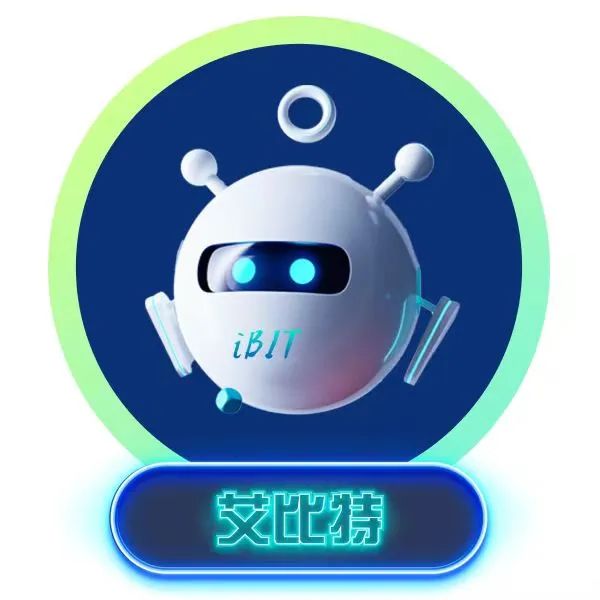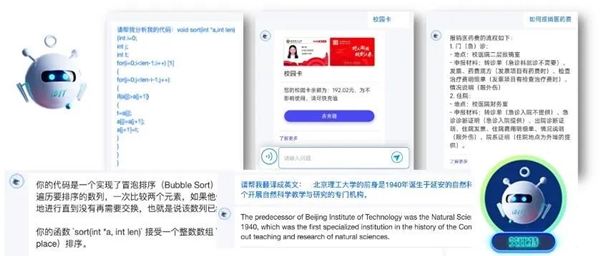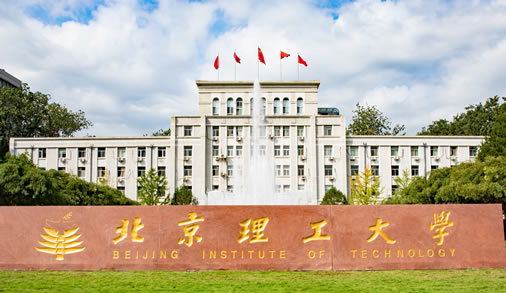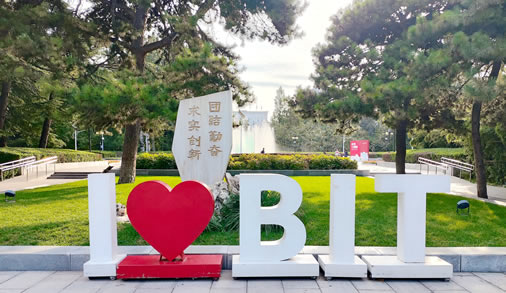

Updated: 2024-01-09
On Jan 1, 2024, "iBIT", the exclusive AI assistant created by the Beijing Institute of Technology (BIT), was launched on the iBIT mobile and PC platforms (i.bit.edu.cn).
As a virtual assistant, it provides personalized and intelligent services to students and faculty of the BIT.

A virtual image of "iBIT" [Photo/english.bit.edu.cn]
In recent years, the university has been promoting smart construction, advancing the modernization of its governance system and capabilities through information technology.
The introduction of the AI exclusive assistant as an innovative application integrates AI technology into university governance, accelerates the overall digital transformation of the school, and offers more intelligent services to students and faculty.
As an exclusive intelligent assistant based on generative AI, "iBIT" is built upon a general large-scale model, and integrates the university's own information, data, and applications.
It provides personalized intelligent services to students and faculty in the form of a virtual assistant, meeting diverse needs in work, study, and life, and enhancing the overall efficiency of students and faculty.
The AI assistant possesses not only the capabilities of a general large-scale model, but also intelligence. It features practical functions such as intelligent interactive Q&A, code inspection and optimization, document summarization and polishing, as well as online translation.
Simultaneously, it can provide personal exclusive services, assist students and faculty in accessing various school procedures, query personal-related data, and invoke campus applications through text or voice commands.
In the future, the university plans to integrate "iBIT" with the "Yanhe Classroom" teaching platform, combining knowledge graphs to offer a more intelligent teaching experience for students and faculty.

Functions performed by "iBIT" [Photo/english.bit.edu.cn]
It's worth mentioning that "iBIT" also possesses self-learning and evolving capabilities. Through continuous interaction and learning from students and faculty, it can better understand user needs and provide more precise services.
This continuous evolution capability allows "iBIT" to adapt to the ever-changing campus environment, improving everyone's personalized service experience.














